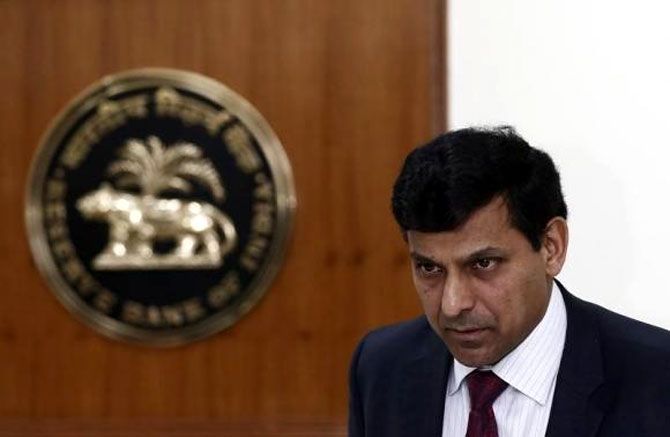
Sooner the government finalises its choice, the better it will be for ensuring stability in the country’s financial system.
With the Reserve Bank of India Governor Raghuram Rajan announcing his decision to return to academia at the end of his current tenure in September this year, the government must now get down to the important task of finding his successor without any delay.
The global economic situation is not too stable.
Though the markets in India have taken in their stride the news of Mr Rajan’s exit from the RBI, the tasks ahead for the central bank are challenging.
Uncertainty over who will succeed at the helm of the RBI, therefore, cannot be allowed to persist for long.
It is true that Mr Rajan’s three-year term comes to an end only in the first week of September.
But sooner the government finalises its choice, the better it will be for ensuring stability in the country’s financial system.
An early choice will also allow Mr Rajan to do some hand-holding for his successor and facilitate a smooth transition.
The government has so far not acted either wisely or efficiently in managing the transition at the central bank.
Attacks against the RBI governor were allowed unchecked and when Mr Rajan’s departure became imminent, the government made no apparent attempt at making a co-ordinated announcement of the change of guard in the central bank.
In the end, the RBI governor put out his plans to return to academia on Saturday on the website of the central bank and the government was left responding to that decision, giving rise to avoidable and unhealthy speculation on what really led to Mr Rajan’s decision.
Even as the government starts the process of selecting the new RBI governor, it must give up the idea of using the services of a committee to shortlist the names of candidates.
Earlier newspaper reports had suggested that the government would like a search committee, headed by the Cabinet secretary, to complete that job.
The committee was reported to have three external members and two more government nominees -- the additional principal secretary in the Prime Minister’s Office and an official representing the finance ministry.
The same committee had completed the search for the chairman of the Securities and Exchange Board of India (though all its recommendations were rejected and the government chose to give the incumbent chairman an extension of one year) and two deputy governors of the RBI.
It is now being reported that no committee will be asked to shortlist the candidates for the RBI governor’s job.
This is a welcome decision.
The government does not need the services of a committee -- that too headed by a senior civil servant -- to identify candidates who could head the RBI, a critical institution that has so far performed its role most creditably and efficiently.
There are always a handful of candidates who could be considered for such a critical job and their track record is widely known, obviating the need for any formal shortlisting or interviews.
The prime minister and the finance minister are competent to consult each other and decide on a name that they think should be considered for heading the central bank.
The green signal of the Appointments Committee of the Cabinet can then be obtained after necessary clearances so that the choice can be formalised.
This system has stood the test of time and there is no reason to discard it now.
Image: RBI Governor Raghuram Rajan. Photograph: Adnan Abidi/Reuters












 © 2025
© 2025